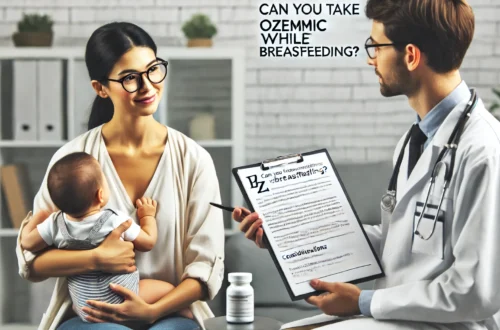Polycystic Ovary Syndrome (PCOS) affects millions of women worldwide, often leading to hormonal imbalances, insulin resistance, and various other health issues. While diet and exercise are key to managing PCOS, many women turn to multivitamins to fill nutritional gaps and support overall health. But how effective are they? In this article, we’ll explore the benefits of multivitamins for women with PCOS, the nutrients to look for, and tips for choosing the right one.
Why Multivitamins Matter for Women with PCOS
PCOS often brings unique nutritional challenges. Many women with this condition experience:
- Deficiencies in essential vitamins and minerals like Vitamin D, B12, Magnesium, and Zinc.
- Hormonal imbalances that require targeted nutritional support.
- Increased inflammation and oxidative stress.
- Weight management difficulties due to insulin resistance.
Multivitamins can help address these deficiencies, providing a convenient way to support overall health and manage PCOS symptoms effectively.
Key Nutrients to Look for in a Multivitamin for PCOS
1. Vitamin D
Vitamin D is crucial for hormone regulation, improving insulin sensitivity, and reducing inflammation. Studies on PubMed show that Vitamin D supplementation improves menstrual regularity and fertility outcomes in women with PCOS.
2. Vitamin B12
Women with PCOS who take Metformin are at risk of Vitamin B12 deficiency, which can lead to fatigue, nerve damage, and mood swings. Including B12 in your multivitamin helps prevent these issues.
3. Vitamin E
Vitamin E acts as an antioxidant, reducing oxidative stress and inflammation in women with PCOS. It also supports healthy skin and hair, which are often affected by PCOS symptoms. Learn more about its benefits in our Vitamin E for PCOS article.
4. Vitamin C
Vitamin C boosts immune function, reduces inflammation, and improves iron absorption, especially for women experiencing heavy menstrual bleeding. Explore its fertility benefits in our Vitamin C for PCOS article.
5. Magnesium
Magnesium is vital for improving insulin sensitivity and reducing anxiety, which are common issues in women with PCOS. Magnesium-rich multivitamins can also aid in better sleep and muscle relaxation.
6. Zinc
Zinc supports hormonal balance and is particularly beneficial for reducing acne and promoting ovulation in women with PCOS. According to Healthline, zinc deficiency is common in PCOS and can worsen symptoms.
7. Chromium
Chromium improves blood sugar regulation by enhancing insulin sensitivity, making it a key nutrient for women managing PCOS-related insulin resistance.
8. Omega-3 Fatty Acids
While not a vitamin, many multivitamins include Omega-3 fatty acids due to their anti-inflammatory properties and ability to regulate hormones and improve fertility.
How Multivitamins Help with PCOS Management
- Fill Nutritional Gaps
Many women with PCOS struggle to get all the necessary nutrients from food alone. Multivitamins ensure your body gets what it needs to function optimally. - Support Hormonal Balance
Key vitamins like D, B12, and E play a role in regulating hormones, reducing symptoms like irregular periods and mood swings. - Improve Fertility
Nutrients like Vitamin D, Zinc, and Omega-3s enhance egg quality, regulate ovulation, and prepare the body for conception. - Boost Energy Levels
Fatigue is a common symptom of PCOS. Multivitamins containing B12, Magnesium, and Iron can help combat tiredness and improve overall vitality. - Enhance Skin and Hair Health
Vitamins E, Zinc, and Biotin (often included in multivitamins) support healthier skin and stronger hair, addressing issues like acne and thinning hair caused by PCOS.
Choosing the Right Multivitamin for PCOS
When selecting a multivitamin, consider the following:
- Check the Label: Look for the nutrients mentioned above and avoid fillers or unnecessary additives.
- Opt for High-Quality Brands: Choose multivitamins from reputable companies that adhere to good manufacturing practices (GMP).
- Consider Your Unique Needs: Some multivitamins are tailored specifically for women with PCOS, focusing on hormone regulation and fertility.
- Consult a Doctor: Always check with a healthcare professional before starting any supplement to ensure it’s right for your individual needs.
For recommendations, visit Mayo Clinic’s guide on choosing multivitamins.
Who Should Take Multivitamins?
Multivitamins can benefit most women with PCOS, but they are particularly helpful for:
- Vegetarians or Vegans: These diets may lack B12, Iron, and Zinc.
- Women on Metformin: To prevent B12 deficiency caused by the medication.
- Women Trying to Conceive: Prenatal multivitamins are specifically designed to support fertility and pregnancy.
- Those with Nutritional Deficiencies: Blood tests can reveal if you’re lacking key vitamins and minerals.
Tips for Maximizing Multivitamin Benefits
- Pair with a Healthy Diet: Multivitamins are supplements, not substitutes. Focus on whole foods like vegetables, lean proteins, and healthy fats.
- Take with Food: Fat-soluble vitamins like D and E are better absorbed when taken with meals containing healthy fats.
- Be Consistent: Take your multivitamin daily at the same time to build a routine.
- Monitor Your Progress: Track improvements in your symptoms to gauge the effectiveness of your multivitamin.
Lifestyle Tips for Better PCOS Management
While multivitamins are beneficial, they work best when combined with lifestyle changes:
- Exercise Regularly: Physical activity improves insulin sensitivity and supports weight management.
- Manage Stress: High stress levels can worsen PCOS symptoms. Practice yoga, meditation, or mindfulness.
- Sleep Well: Hormonal balance depends on quality sleep, so aim for 7–8 hours nightly.
- Stay Hydrated: Drinking enough water supports nutrient absorption and overall health.
FAQs About Multivitamins and PCOS
1. Can I take multivitamins with other supplements?
Yes, but avoid overdosing on individual nutrients. For example, if your multivitamin contains Zinc, skip additional Zinc supplements unless advised by a doctor.
2. Are there any side effects of multivitamins?
Most multivitamins are safe when taken as directed. However, taking too much can cause nausea or stomach upset. Stick to the recommended dosage.
3. How long does it take to see results?
Most women notice improvements in energy, mood, and overall well-being within a few weeks of consistent use.


